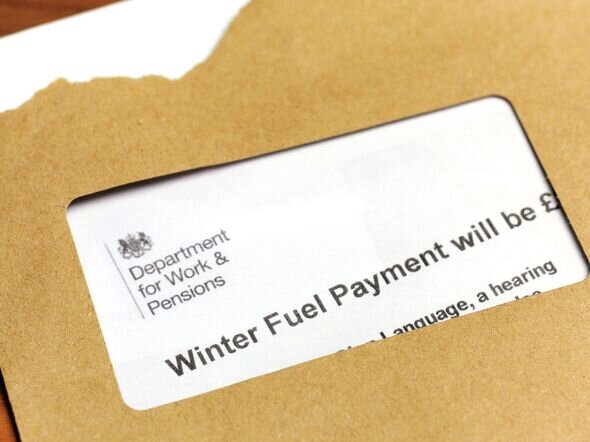Let’s Break This Down Together…
Filing your Self Assessment tax return late triggers penalties, even if you've paid your tax bill on time. HMRC operates a strict penalty system that escalates over time.
Understanding these penalties can save you hundreds or even thousands of pounds. Knowing appeal options and reasonable excuses might help you avoid penalties altogether.
Navigating Self Assessment deadlines and penalties can feel overwhelming. Whether you're catching up or just trying to get your head around it all, let's break it down together.
Understanding the Self Assessment Filing Deadline
The self assessment filing deadline is one of the most important dates in the tax calendar for anyone required to submit tax returns to HMRC. For online self assessment tax returns, the filing deadline is 31st January following the end of the tax year, while paper tax returns must be received by 31st October. Missing the self assessment filing deadline triggers late filing penalties, regardless of whether your tax has been paid.
It’s crucial to plan ahead and ensure your assessment tax return is submitted before the filing deadline to avoid unnecessary penalties. If you do miss the deadline, HMRC may consider a reasonable excuse, such as serious illness or unexpected events, but this is assessed on a case-by-case basis. Remember, late payment penalties can also apply if your tax isn’t paid on time, so it’s essential to meet both your filing and payment obligations. Staying organised and aware of the assessment filing deadline each tax year is the best way to keep your tax affairs penalty-free.
Why Does HMRC Penalise Late Filing When Tax Is Paid?
Many taxpayers are surprised to learn that HMRC treats filing and payment as completely separate obligations. This distinction catches out thousands each year.
If you are required by HMRC to file a tax return, you are legally obliged to complete and submit it, regardless of whether you have already paid the tax you owe.
You can pay all the tax you owe perfectly on time, but if you don’t submit the actual tax return, you’ll still face penalties.
The logic is that HMRC needs your detailed financial information, not just your money. Without your return, they can’t verify that you’ve paid the correct amount.
This system means you could face substantial penalties even when you don’t owe any additional tax.
What Happens If You File Late But Pay On Time?
If you’ve paid your tax bill but haven’t filed your return by the 31st January deadline, you’ll immediately receive a £100 fixed penalty. This is the first of several late submission penalties HMRC can impose.
This £100 penalty applies regardless of whether you owe tax or not. Submitting a late tax return triggers penalties even if you’ve paid everything or are due a refund.
After three months, the penalties start to stack up with a £10 daily penalty. By the six-month mark, you could be looking at over £1,000 in penalties.
The longer you delay filing, the worse it gets, potentially reaching thousands of pounds, all while your tax bill itself was paid punctually.

HMRC's Complete Penalty Timeline
Here’s how the penalties add up when you file late:
Day 1 after the deadline: An immediate £100 fixed penalty applies automatically.
3 months late: £10 daily penalties begin, continuing for up to 90 days (maximum £900).
6 months late: An additional penalty of £300 or 5% of tax outstanding (whichever is higher) is charged.
12 months late: Another £300 or 5% of tax outstanding penalty charged. This can increase to 100% of tax due in cases of deliberate withholding. This applies to cases that are deliberate and concealed or involve deliberately withholding information from HMRC.
These are tax geared penalties, meaning the penalty charged is based on the amount of tax outstanding.
These penalties apply even when you’ve paid your tax on time, they’re purely for the paperwork being late! Penalties are calculated based on the tax outstanding at each stage.
Late Tax Payments and Interest
Paying your tax late can quickly become expensive due to late payment penalties and interest charges. If you have an outstanding tax liability after the payment deadline, HMRC will apply a late payment penalty, which is often tax-geared, meaning the penalty is calculated as a percentage of the unpaid tax. In addition to the penalty, interest will accrue on both the unpaid tax and any unpaid penalties, increasing the total amount you owe.
The late payment penalty structure is as follows: if your tax payments are overdue by 16 days, a first penalty is charged; if still unpaid after 31 days, a second penalty is added. These late payment penalties are designed to encourage prompt payment and can add up quickly if left unresolved. If you’re struggling to pay your tax bill, it’s important to contact HMRC as soon as possible to arrange a payment plan or pay arrangement. This can help you manage your outstanding tax and potentially reduce the impact of further penalties. Staying on top of your tax payments is key to keeping your tax affairs in good order and avoiding unnecessary costs.
Failure to Notify and Income Tax
Failing to notify HMRC about your income tax liability can result in significant penalties, including both failure to notify penalties and late payment penalties. You have a legal obligation to inform HMRC if you owe income tax, capital gains tax, or National Insurance contributions. If you don’t notify them on time, you could face a penalty based on a percentage of the tax that should have been paid, this is known as a notify penalty and is calculated on the potential lost revenue.
HMRC may reduce these penalties if you make a prompt disclosure and cooperate to bring your tax affairs up to date. Special circumstances, such as serious illness or other unforeseen events, may also be taken into account when determining the penalty amount. To avoid failure to notify penalties, it’s essential to keep accurate records, review your tax position regularly, and seek professional advice if you’re unsure about your obligations. Taking swift action if you discover a mistake can help minimise penalties and ensure your income tax self assessment is fully compliant.
How To Pay Your Late Filing Penalties
HMRC typically sends penalty notices separately from your tax statements. These arrive by post or appear in your online account.
You'll need to pay using a different payment reference than your normal tax payments. The penalty notice will include these specific details.
You can pay online through your HMRC account, by bank transfer, or Direct Debit. Most people find the online payment method quickest.
Remember to allow 3-5 working days for payments to clear, especially if you're paying close to any further penalty thresholds.

Can You Appeal A Late Filing Penalty?
Yes! If you have a genuine reason for filing late, HMRC may accept a “reasonable excuse” and cancel your penalty. The appeal process allows you to challenge all these penalties if you have a valid reason or special circumstances exist.
Valid reasons typically include serious illness, bereavement, or unexpected hospital stays. Reductions apply if you can demonstrate a valid reason or special circumstances. Technical issues with HMRC’s online systems can also qualify.
Natural disasters affecting your records or disability-related filing difficulties are generally accepted as reasonable excuses.
To appeal, you must do so within 30 days of receiving your penalty notice. If you disagree with HMRC’s decision, you can escalate your case to the first tier tribunal. Use HMRC’s online appeals service or form SA370.
HMRC may grant a special reduction (special reduction HMRC) in penalties if special circumstances exist.
What Doesn't Count As A Reasonable Excuse?
HMRC is quite strict about what doesn't qualify as a reasonable excuse. Their criteria can seem harsh but are consistently applied.
Relying on someone else to file for you (like an accountant) who then failed to do so isn't accepted. HMRC considers this your responsibility.
Forgetting the deadline or being too busy with other work won't convince them. Nor will simple software or computer problems that could have been resolved earlier.
Not receiving a reminder from HMRC isn't valid either. They consider tax deadlines to be your responsibility to remember.
Not understanding the system or making a mistake generally won't work as an excuse, unless you have a disability or condition that caused this.
How To Avoid Future Late Filing Penalties
Set multiple calendar reminders – not just for January, but also October and December to give yourself plenty of time.
Gather your paperwork throughout the year rather than scrambling in January. Keep receipts, invoices and statements organised monthly.
Consider filing by December to avoid the January rush and potential HMRC website slowdowns. Early December is often ideal.
Use digital record-keeping apps to make the process faster and more accurate. Many connect directly to HMRC systems.
If your tax affairs are complex, investing in professional help could save you both penalties and stress.
Making prompted and unprompted disclosures to HMRC about any errors or delays in your tax return can reduce penalties. Unprompted disclosures, made before HMRC contacts you, are particularly effective in lowering potential penalties. Keeping your records up to date and cooperating with HMRC enables HMRC to process your tax affairs efficiently and may help you avoid penalties altogether. HMRC is also reforming penalties to make the system fairer and more consistent for taxpayers.

Final Thoughts
Self Assessment filing penalties can hit hard even when you've paid your tax in full and on time. HMRC treats filing and payment as separate obligations with distinct penalty systems.
If you have a genuine reasonable excuse, don't hesitate to appeal. But the best strategy is to file early and avoid the stress altogether.
Remember that digital tools and professional advice can significantly reduce your risk of missing deadlines. These resources often pay for themselves by helping you avoid unnecessary penalties.
Simplifying Self Assessment Penalties
Taking control of your tax obligations shouldn't be confusing or stressful.
Our direct HMRC filing feature ensures your return is submitted correctly and on time. Our real-time tax calculations keep you informed of exactly what you owe before the payment deadline.
The multi-income dashboard makes managing various income streams simple. It automatically organises your finances for Self Assessment compliance.
Whether you're worried about past penalties or preventing future ones, our sector-specific assistants guide you through your specific tax obligations.
Explore the Pie app if you'd like to see how it works.











